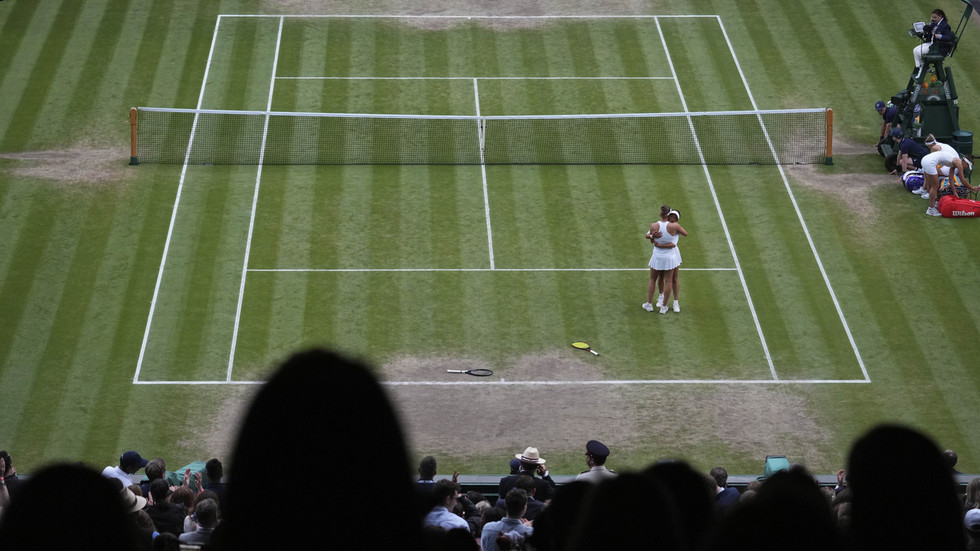
Insiders warned that ATP and WTA reprisals might doom pre-Wimbledon tournaments
FILE PHOTO © AP / Alberto Pezzali
The British Lawn Tennis Association (LTA) believes international bodies, the ATP and WTA, are serious about suspending its flagship events if the British ban on players from Russia and Belarus continues, UK media reported on Monday.
The LTA and the All England Club, which runs Wimbledon, imposed the ban last year citing the conflict in Ukraine. The WTA and ATP responded by stripping the Grand Slam tournament of ranking points and imposing a fine against UK tennis.
The LTA now faces losing the rights to host pre-Wimbledon grass tournaments such as Edgbaston and Queen’s Club, an association insider told the Guardian. According to the source, the LTA “faces an existential threat if the grass court events aren’t staged,” as it would lose almost 30% of its income.
In 2019, the LTA made £14.6 million in ticket sales and over £6 million in commercial revenue from the two events, which attracted about 180,000 spectators. A £20 million hit to its revenue would mean the LTA won’t be able to fund British tennis talent such as Emma Raducanu, the insider said.
Last year’s ban was denounced by Russian players but applauded by Ukrainian athletes, who demanded anyone from Russia or Belarus first denounce their government before being allowed to compete internationally.
Russian Tennis Federation (RTF) president Shamil Tarpishchev predicted last month that Britain would lift the ban ahead of this summer’s tournaments.
“There is no doubt. The position of the ITF is that athletes are selected purely by rating, and not by nationality in relation to all tournaments in different countries of the world,” he told RIA Novosti. “Anything else will be a violation by the organizers.”
READ MORE:
Wimbledon ban ‘changed nothing’ says Belarus star
The WTA tournament in Edgbaston and the ATP tournament at Queen’s Club are both scheduled for mid-June, as a prelude to the Wimbledon tournament in July. British tennis associations are currently negotiating with the government, with a decision expected “by early April,” according to the Guardian.




